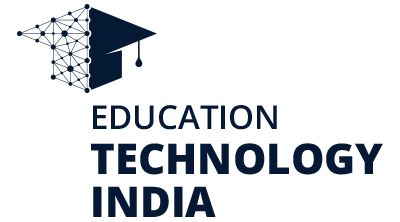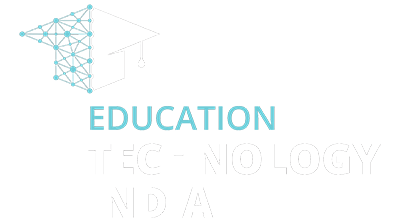
As digital technology pervades our lives, the drawbacks become as evident as the vibrant Super Retina XDR screen on a new iPhone. Initially, social media appeared enjoyable until it contributed to youth anxiety and depression, becoming a primary source for news and commentary that tends to reinforce our existing beliefs. Cryptocurrency, once hailed as a way to usher in a decentralized digital age, faced setbacks with limited practical applications, price collapses, and the disappearance of exotic currencies and exchanges. Non-fungible tokens (NFTs), touted as digital objects with blockchain-recorded ownership, saw a speculative bubble that resulted in the devaluation of around 95%.
Beyond the financial harm caused by the crypto industry, physical harm also emerged. During a celebration of a new collection of Bored Ape Yacht Club NFTs, attendees suffered eye damage due to organizers’ use of fluorescent paint and bright UV lights. Despite such incidents, some remained reluctant to criticize the NFT craze. Amidst the positive impact of digital technology on education, such as facilitating online learning and improving efficiency, it is essential not to overlook the downsides. For instance, the widespread use of online gradebooks in K-12 education, embedded in learning management and student information systems, aimed to provide real-time feedback. Although this approach intended to empower students by keeping them informed, it eliminated the surprise element of report cards, reminiscent of a time when bored apes were confined to actual zoos.
Teachers observe numerous adverse effects on students, particularly in high school where grades hold significant weight. Exceptional students incessantly check the gradebook to safeguard their A grades. When facing the risk of a grade drop, teachers often encounter students seeking grade adjustments. Those aiming for the minimum pass level strategically determine the least amount of effort required to pass. Failing students, faced with multiple zeros for missing assignments, may lose motivation to persevere, feeling overwhelmed by seemingly insurmountable numbers. One teacher shared with The Cut that online gradebooks have drained her students of intrinsic motivation and contributed to increased instances of cheating.
However, the primary drawback of online gradebooks lies not in direct harm to students but in their role as a catalyst for strained parent-teacher relationships.
Over a decade ago, the Institute for Excellence in Teaching and Learning at Chapman University examined the emergence of online gradebooks (OGBs). Their findings revealed that approximately 9% of parents using OGBs contacted their child’s teacher every time a poor grade was posted, irrespective of its significance. The researchers foresaw online gradebooks giving rise to a new category of parents determined to overcome any obstacles for their children.That dystopian future is now. In November, Jessica Grose made a compelling case in the New York Times that online gradebooks have not only increased the number of helicopter parents, they’ve also transformed helicopter parents into snowplow parents “questioning teachers about every grade they considered unacceptable.” Part of the problem is that online gradebooks now allow parents to opt in for automated emails for missed assignments – even the tiniest ones – or when their child’s GPA drops a fraction.
As a result, many children are learning helplessness as much as math and reading. According to one 6th grade teacher blogging on weareteachers.com, “when caregivers get notifications every time an assignment is 15 minutes overdue, kids don’t have a chance to make mistakes, learn from them, and become more responsible. That’s when we have parents showing up at professors’ office hours and their kids’ job interviews … they don’t know how to stop monitoring their child’s progress.” Jeff Young of EdSurge compares the level of privacy that kids have now with what a child celebrity had a generation ago; as Jeff rightly notes, “that didn’t go well for many child celebrities.” And a New York child psychiatrist told The Cut that she has “many, many super-high-functioning young adults starting college, and they literally can’t place a Starbucks order without texting their moms.”
Online gradebooks may also be increasing inequality. Families without reliable Internet access or for whom English is a second language are less likely to helicopter or snowplow, contributing to the achievement gap (at least on paper). So yes, online gradebooks can increase the number of assignments turned in, “but at what cost?”
Another immediate cost is the burden on teachers. Grose calls online gradebook-driven parent emails “an untenable stream of additional communication.” As one teacher complained: “The whole idea of the tech revolution was ‘this will simplify everything and make less work.’ It has done the opposite. It has complicated everything and made more work.”
The online gradebook origin story began two decades ago with the No Child Left Behind Act. NCLB required school districts to use technology to increase home-school communication and promote parent involvement. Like social media and crypto, it seemed like a good idea. But today, with technology keeping parents up-to-speed, prompting them to question teachers at all hours, millions more feel entitled to immediate answers from schools on almost any topic. With teacher and school authority effectively undermined, “informed” and “empowered” parents now expect to know what’s happening at school – not just in general, but in great detail. What’s in the curriculum? What books are in the library? Which students can use which bathrooms? How much are you spending per student and why can’t taxpaying parents receive the same for private, parochial, or home schools?
And so edtech has inadvertently fueled the parental rights movement currently washing over public schools and causing districts to pull offending dictionaries and encyclopedias off shelves, not to mention the Guiness Book of World Records, which I kind of get, because there are some disgusting photos in there. Note that NCLB applied to public schools, which is where online gradebooks became omnipresent; no comparable parental rights movement is roiling charter, parochial, or private schools.Most parents know enough about K-12 education to conclude, rightly, that their children should have the ability to attend school in person vs. a year in Zoom school. Those parental rights are understandable; prolonged school closures were an impetus for the current movement. But the likelihood that average parents know better than trained professionals how to educate their children – not as a general idea, but at the level of curriculum – is probably about the same as making money on a Bored Ape NFT. Endeavoring to shield children from undesirable topics is just another manifestation of online gradebook snowplow parenting. And like grade grubbing, it favors one’s own children at the expense of others.
Online gradebooks have not only fed parent distrust of education professionals, the two now swirl in a vicious circle. We no longer identify ourselves with increasingly untrustworthy institutions like governments, churches, or schools – or, for that matter, increasingly unstable jobs. (In the school context, transparency has undermined trust.) Instead, we’ve retreated to identifying ourselves with our children. And increasingly, as Grose points out, “parents see their children’s grade as the ultimate reflection on themselves.” So parents spend more time badgering teachers, which further reduces trust, sending schools and students spiraling.In an era of digital instant gratification, a retreat from the online gradebook will be challenging. While some teachers engage in small acts of rebellion by not updating online gradebooks, this isn’t much of a strategy. Students and parents now expect grades in real time. So much as they might wish to, individual teachers can’t turn back the clock themselves.
Still, it’s clear students, parents, and schools would be better off if grades were less frequent and summative. Formative assessments are crucial and schools at all levels should be leveraging digital technology to make much more frequent use of them. But formative assessments should elicit feedback, not grades. Putting a number on something, like a score, a grade, a GPA, or a ranking – that’s what attracts undue attention; that’s the problem. Formative assessments can be summed into a component of a final grade but shouldn’t be scored or graded themselves, then posted to an online gradebook.
In recognition of what online gradebooks have wrought, schools and districts should make a concerted change. Some schools have imposed blackout periods on gradebooks as recommended by Stanford’s Challenge Success. Others have staggered release times. And some have opted to move away from grades entirely: towards mastery learning where student progress is tracked across multiple competencies. We should support any strategy that returns schools and students to the sanity of a pre-digital report-card-like era when students and parents only obsessed over numeric or letter grades at certain times of year.As with the fancy technology at Apefest that resulted in a loss of sight, fancy online gradebooks have caused us to lose sight of what really matters in K-12 education. At Achieve, we recognize there’s nothing inherently good about education technology; it’s only valuable if it demonstrably improves learning. Otherwise, it’s no more useful than an NFT.






